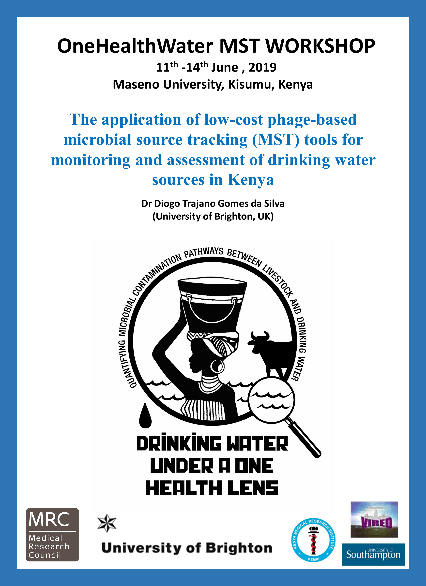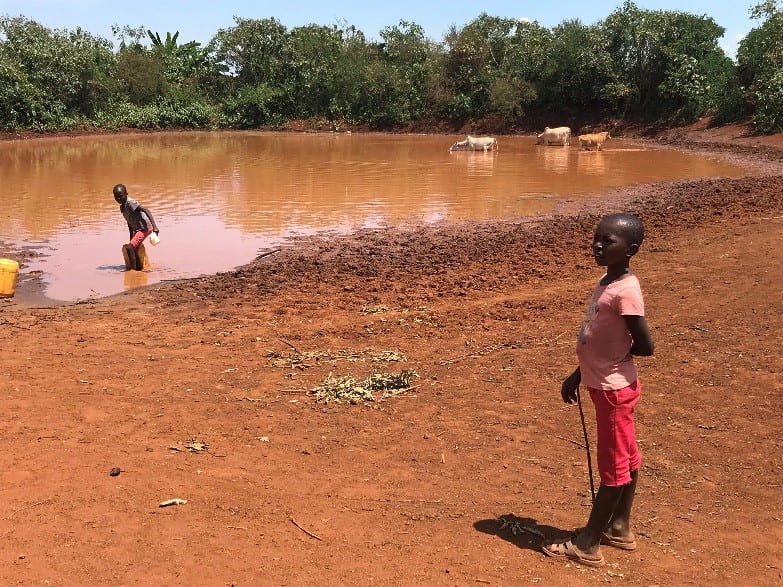OneHealthWater MST workshop 11th to 14th June 2019
Last June, Dr Diogo Trajano Gomes da Silva (University of Brighton) ran a 4 day capacity building training workshop on “The application of low-cost phage-based microbial source tracking (MST) tools for monitoring and assessment of drinking water sources in Kenya”. The workshop took place at Maseno University Kisumu Campus (Kenya) from 11th – 14th June 2019. It was organized through a collaborative research project between the Kenya Medical Research Institute, Victoria Institute for Research on Environment and Development (VIRED), University of Southampton and University of Brighton. The project dubbed “Drinking-water under a “One Health” lens: quantifying microbial contamination pathways between livestock and drinking- water” is funded through by the UK Global Challenges Research Fund via the Medical Research Council.
Microbial source tracking (MST) is a process of identifying a particular source (such as human, cattle, or bird) of faecal contamination in water. During the last two years the research team has developed a MST protocol, using human-specific and animal specific bacteriophages infecting Bacteroides species that can be used to identify human and cattle faecal contamination in water sources from rural Kenya. The result is a relatively ‘low-tech’, economically feasible approach to MST that offers potential for elucidating diarrheal diseases transmission pathways, particularly in complex settings where non-human faecal inputs are commonplace and where the detection of the etiological agents of disease are limited by their low environmental prevalence.



